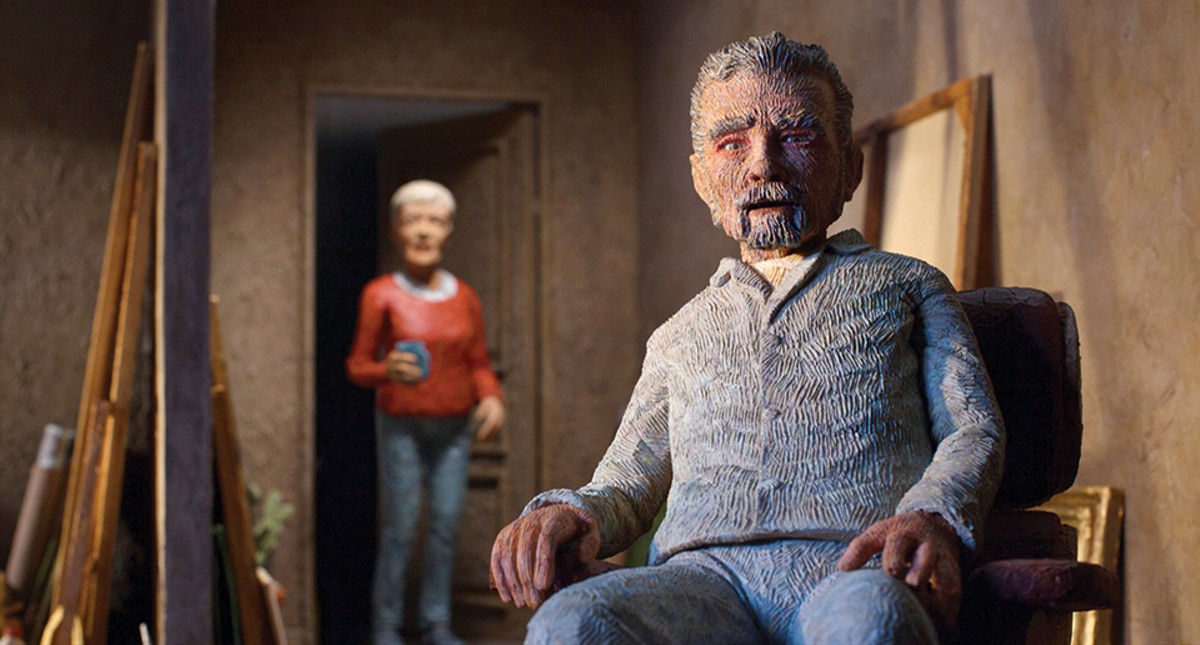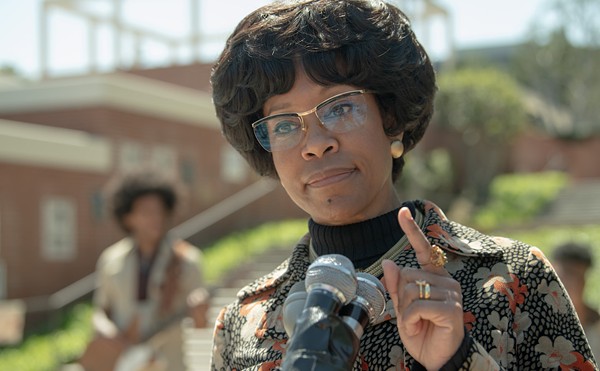Amid the statistical frenzy and publicity torrents that define the cinematic award season, there is still an entire culture of filmmaking that doesn't fill the multiplexes, coordinate multimedia advertising campaigns or make the rounds of the late-night talk shows. For years, these outside categories, the documentaries and short subjects, were the neglected cousins of the film industry. In recent years, they've gained attention thanks to the expanding number of media outlets, ever hungry for content. For the past fifteen years, the otherwise unheralded short films have been given exposure in a brief theatrical tour of two separate programs, one of live-action narratives, the other of animation, increasing both their visibility and your odds in the Oscar pool.
The animated films, always eager to distance themselves from their medium's reputation for frivolousness, are a mixed bag, avoiding (with one exception) cute fuzzy creatures to touch on various aspects of the human experience. The best of them, Bruno Collet's "Mémorable," is a dizzying combination of visual effects illustrating the disintegrating consciousness of an aging painter. In one brief but inspired scene, the painter uses post-it notes to restore his vanishing world, placing a picture of the sun on a lamp to remind him of its purpose. An artful blend of computer graphics and Van Gogh inspired impressionism, "Mémorable" combines the tragic solemnity of Michael Haneke's 2004 film "Amour" with hallucinatory imagery, creating a vivid, poignant sense of loss.
A similar if less somber sense of humanity permeates many of the other nominees. "Daughter" an award-winning Czech student film, uses puppet-like figures and well-crafted sound design to explore the bond between a woman and her dying father. Matthew Cherry's imaginative "Hair Love" playfully turns a father's efforts to tame his daughter's unruly afro into broad comedy with a sentimental payoff, while the curious "Sister" uses nostalgic sight gags to critique the pro-abortion policies of China.
But let's not underestimate the appeal of cute fuzzy creatures: The Pixar produced "Kitbull" uses both realistic elements and broad comic strokes to create a partnership between a feral cat and a junkyard dog. It's simple, unpretentious, and thoroughly charming, a throwback to animation's grand tradition of animal partnerships.
Topicality dominates this year's live-action nominees (again with one exception), and while animation benefits from the punchy brevity of the short film format, these films seem to bristle at their limitations, occasionally reaching abbreviated or rushed climaxes. The best of them make strong dramatic points in less than 30 minutes but leave the viewer wanting more. The Belgian film "A Sister," for example, generates suspense for most of its sixteen minutes, depicting an abducted woman making a 911 call while trying to convince her captor that she's talking to her sister. It's dramatic and affective, but the abruptness of the ending gives it the feel of a well-crafted public service announcement.
In "Brotherhood," director Meryam Joobeur favors mood and haunting close-ups over narrative to tell the story of a Tunisian father confronting the return of his prodigal son who went to Syria to aid ISIS and came back with a burka-clad pregnant teenager. It's a quiet and reflective film, with a haunting moral ambiguity. Tunisia also provides the setting for "Nefta Football Club", a comic piece in which two young boys intercept a drug delivery near the Algerian border. The drugs are being carried by a headphone-wearing donkey who's been trained to return home when it hears the music of Adele, but after a well-staged set-up, "Nefta Football Club" dribbles to a weak punch line.
The most powerful film among the nominees might be "Saria," directed by Bryan Buckley, a veteran of TV advertising. Set in a Guatemalan orphanage and based on a true, horrific event from 2017, it's a brief but harrowing account of young girls subjected to brutality and sexual abuse and, for a brief moment, taking a stand against it. Despite a clumsy ending, it's carefully composed and highlighted by strong, natural performances from its two lead actresses.
And then there's "The Neighbors' Window," the program's sole exception to timeliness as well as taste. It's about a married couple living in Brooklyn whose pedestrian, child-dominated life is disrupted with the arrival of new neighbors — wild parties and sexual abandon! — in the building across the street. Despite an unconvincing turn to pathos in the last half, it's Rear Window as a dreary sitcom, minus the laugh track or the need for one.






